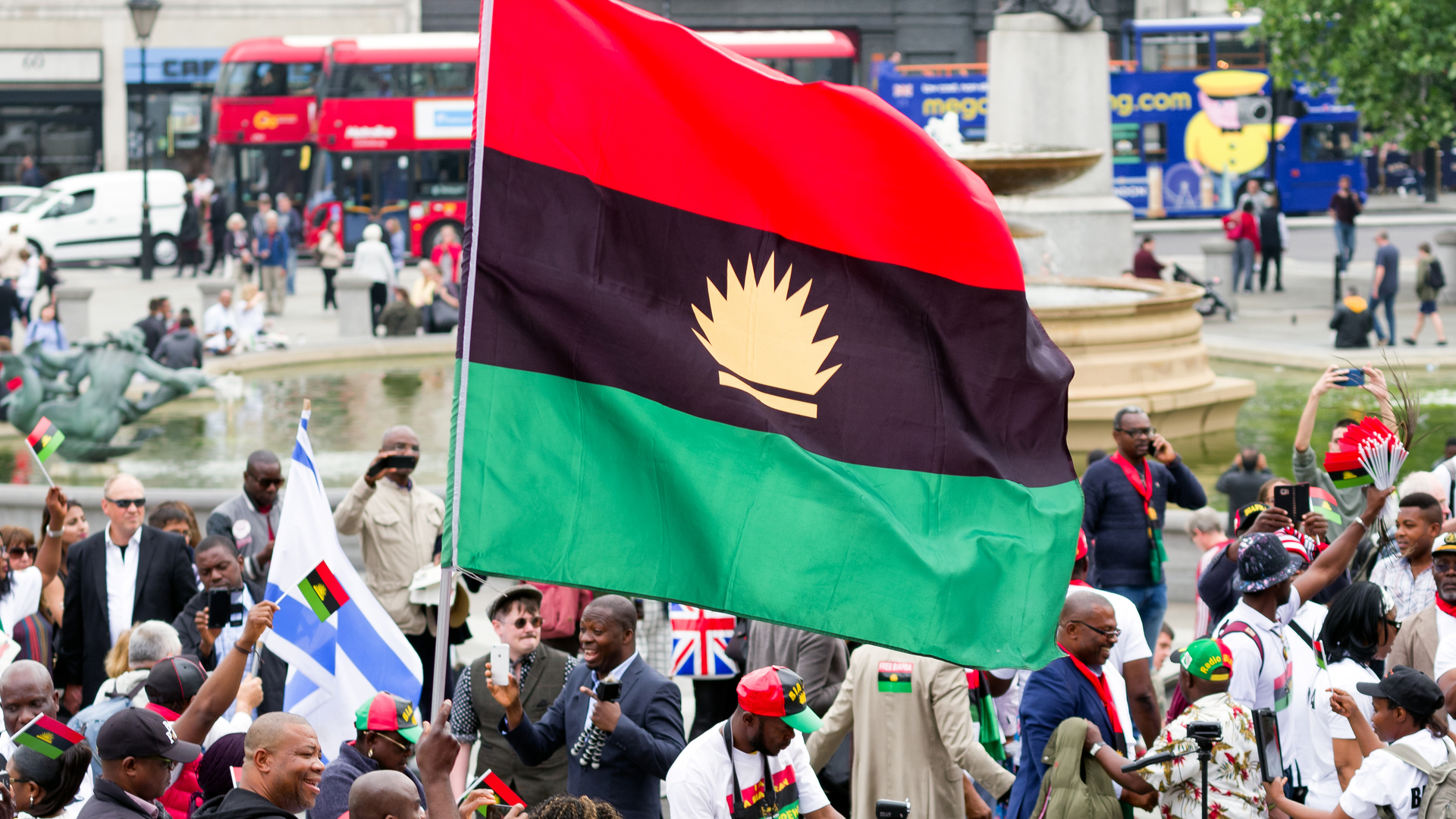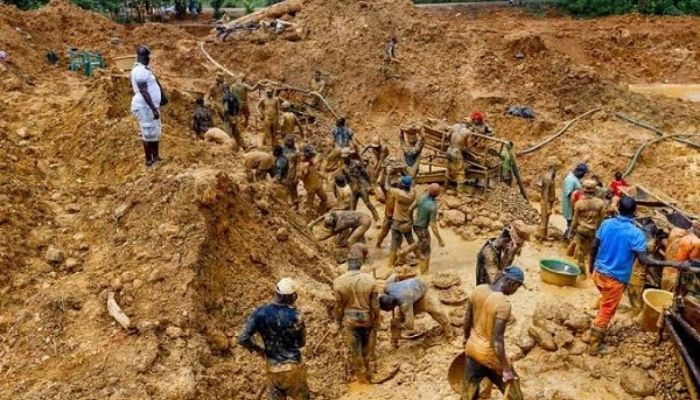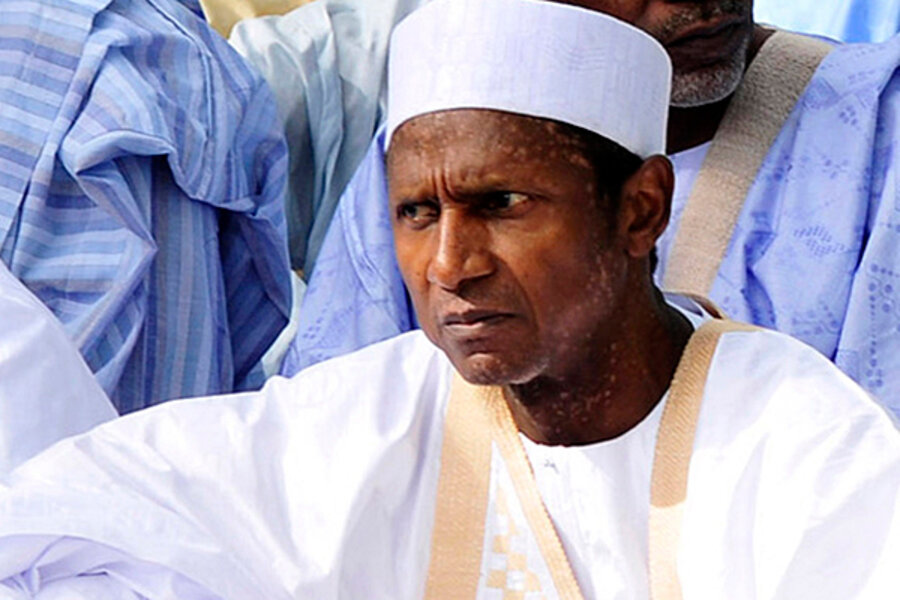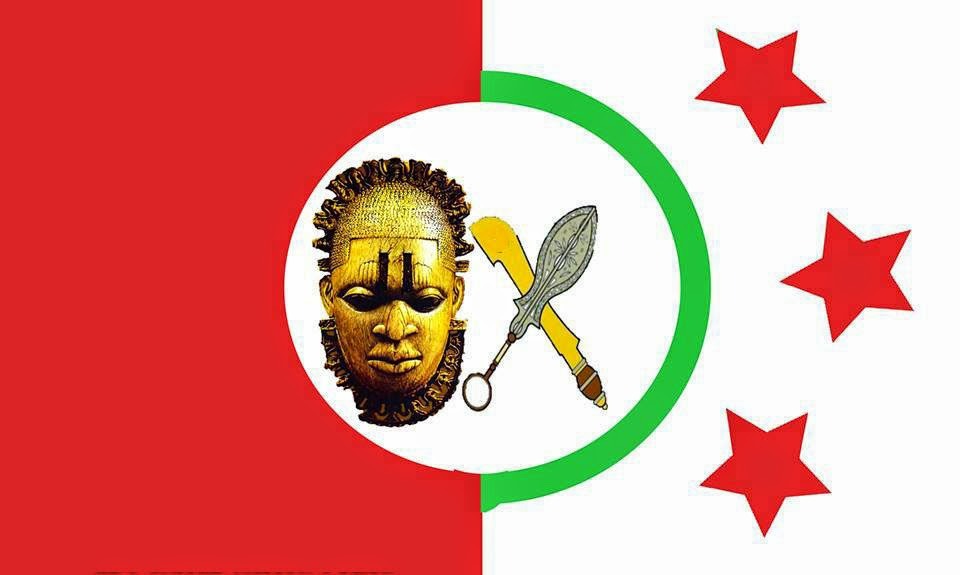As a political analyst, I have always found Uncle Bola fascinating as a
subject. By common consent he possessed a brilliant and incisive mind and was
as sharp with his tongue as he was with his pen. On the few occasions I had
the opportunity to meet him, he always struck me as a man with a large heart.
Yet this man with a sharp mind, a sharp tongue, a sharp pen and a large heart
was a consistent advocate of the superiority of the Yoruba race. Herein lies
my fascination with the man. How, I have often asked myself, could a man with
all these virtues and who, himself, says he is a left-wing socialist, believe
in the supremacy of any race? The man himself would, of course, be the first
to deny that he is a supremacist when he speaks of the superiority of the
Yoruba. Most of his admirers, would agree with him. Both himself and his
admirers would say his position is merely one of pride in his own race.
If that were the case objectively, no one would quarrel with that position. I
am Nupe, or what the Yoruba would call Tapa, and I am proud to be one.
Everyone should be proud of his race.
However, pride in one's race is one thing but to believe, as Uncle Bola did,
that one's own race is all virtue and no vice or that other races are always
the villains of piece and never the heroes, all this is altogether another
thing. Even though Uncle Bola and his friends and many admirers would deny it,
the evidence of his supremacist views abounded in his column in the Nigerian
Tribune and in many of his press interviews. The book under review contains
excerpts from one such an interview. This is the interview published in Tell
of April 30, 2001. For example, in the full version of that interview, Tell
had asked him if he did not see the crisis in Afenifere/Alliance for Democracy
posing a threat to AD's grip on the South-West. Without the slightest
equivocation, he dismissed such a possibility. AD, as essentially a Yoruba
party, has done so well for the Yoruba, he said, that there was not the
slightest chance that they will vote for PDP which many in the South-West
regarded as essentially a Hausa/Fulani party. "Yoruba people," Uncle Bola
said, "will not vote PDP to run their governments. Yoruba people are not
stupid. They will ask one question: Which PDP governor in the whole of Nigeria
can you say is doing better than any AD governor? You tell me if you know
one!"
This, obviously, is to say that all AD governors, by virtue of being Yoruba,
are superior to all non-AD governors. This, equally obviously, cannot be a
scientifically valid assertion to make. Yet, the Tell interview was not the
only occasion Uncle Bola would make such supremacist remarks. For example, on
an earlier occasion, he told The Sunday Vanguard (April 4, 1999) that because
President Obasanjo is Yoruba, his kith and kin would make sure he does so well
in office that "after him, only Yorubas should be allowed to be president of
this country, till Kingdom come".
My fascination with Uncle Bola became more intense when I became Chief Press
Secretary of General Abdulsalami Abubakar between October 1998 and May 1999.
During that period, I had the rare privilege of being Uncle Bola's linkman
with my boss. On several occasions I would drive him in my own car from Nicon
Hilton Hotel in the early hours of the day to meet with General Abubakar. On
those occasions the two of us often discussed politics on our way to and back
from the Villa. Always I found him very captivating.
He also sounded to me as very confident, perhaps even over-confident, about
his chances of leading the AD/ APP alliance to victory over PDP if only he had
won the party's presidential ticket. Although he said he had put his
surprising defeat by Chief Olu Falae for that ticket behind him, I had this
sneaky feeling that he really couldn't. On one occasion, he argued, quietly
validly I must say, that it was ironical that those who preferred Falae to
him, because they said he (Ige) would be a hard-sell outside Yoruba land were
the first to ask him to lead Falae's campaign in other parts of the country.
It was partly my fascination, with the complex and interesting character of
Uncle Bola, a fascination intensified by my close encounter with him in early
part of 1999 that partly made me accept to review the book about him in spite
of the very short notice I got. However, apart from this and Felix Adenaike's
reference, there is a third and final reason, namely several of the
contributors to the book, including Nobel Lauriet Wole Soyinka, Dr Yemi
Ogunbiyi, Professor Tunde Adeniran and Odia Ofeimun, all of them either
acquaintances and friends, or people whose literary output I have always found
interesting. I thought it was apt, given the worryingly slow pace of the
prosecution of Uncle Bola's alleged murderers, that at this time someone would
put together the thoughts of these famous and not-so famous friends and
admirers of Uncle Bola about his contributions to Nigeria's politics and the
arts.
For this reason alone, Bookcraft deserves to be congratulated for its
initiative in publishing what is probably the first of many books about Uncle
Bola, as one of the brightest stars in the political firmament.
Not only is the timing apt, I also think a better title - BOLA IGE: The
Passage of a Modern Cicero - is hard to find for the book. For, by common
consent, Uncle Bola had arguably the greatest gift of the garb among his
political contemporaries. The recurring theme of the contributions in the book
is that Uncle Bola, like the original Cicero, had a capacity for using words
to tie up an opponent or charm friends and foes alike into doing his biddings.
Anyone who has followed Uncle Bola's career even from a distance, would agree
that he was deserving of his alias as the Cicero of Esa Oke, which was coined
back in the early eighties by Dr Stanley Macebuh, then the most cerebral
columnist in the country. According to Encyclopaedia Britannica, Cicero (full
name Marcus Tullus Cicero), was a "Roman statesman, lawyer, scholar and
writer, who in vain, upheld Republican principles, in the civil struggles that
destroyed the Republic of Rome. (He) is best remembered as the greatest Roman
orator and innovator of what became known, as "Ciceronian rhetoric" His
oration was grounded in a thorough knowledge of literature, philosophy, law,
and history among other things. Cicero was born in 106 BC and died 63 years
later.
Clearly, Uncle Bola had many things in common with this ancient Cicero. Both
were politicians with excellent gift of the garb and both were lawyers,
writers and philosophers. Cicero was killed because of his politics and I
strongly suspect that Uncle Bola too was killed because of his politics. In
reviewing BOLA IGE, I decided, for reasons of time constraint, to focus on the
contributions by Soyinka and Ogunbiyi, because they are reputedly his closest
friends and they are also giants in their own fields. Others I have focused on
are (1) Ofeimun because of his defence of what seemed like Uncle Bola's
political somersault late in his life; (2) Sowande, because he alone in the
book substantially addressed the important controversy surrounding Uncle
Bola's membership of the Rosicrucian Order (AMORC); and (3) Mrs Adegbola, his
daughter, because of her captivating narrative about her relationship with her
dad.
I have focussed on these five contributors also because their articles have
captured the essence of the book, which obviously is to give the reader a
portrait of Uncle Bola and keep his memory alive even as those in authority
seem to be hell-bent in frustrating the judicial attempts to get to the bottom
of his cold-blooded murder.
As a reviewer, one would like to ask, how accurate are the portraits of the
man in the book? How easily do the contributions flow to make the book an
irresistible read? How significant for the politics of the country are some of
the issues raised by the contributors to the book? Et Cetera.
Soyinka as the leading contributor to the book paints the portrait of Uncle
Bola as a bridge builder. "Ajibola Ige", the Nobel Lauriet says, "was a
builder of bridges". That, I think, is hardly an accurate thing to say about
someone, who for the better part of his life, built his political career on
the notion of Yoruba Supremacy. I have, in this respect already drawn the
listeners' attention to the evidence in much of his writings and political
statements.
Perhaps, he built bridges within his primary Yoruba constituency. But even
here there are many who would disagree with Soyinka. Certainly, virtually the
entire leadership of Afenifere would so disagree. Such Afenifere leaders like
Chief Ayo Adebanjo and even Chief Abraham Adesanya himself are, after all, on
records to have directly or indirectly accused Uncle Bola of becoming the dog
in the Afenifere/AD's manger, hell-bent on destroying it because it would no
longer service his political ambition.
Soyinka wonders why anyone would want to kill Ige as a man of ideas and words
and not of violence. "Why," he asked, "did they kill this man whose
battlefield lay solely in the realm of ideas, of debate, in the skills of
organisation and ability to lead and inspire men and women, even children?"
Soyinka, I believe, knew why and was most likely being merely being
rhetorical, because as a man of letters, he knows more than any other person
that men of ideas and words are far more dangerous than men of swords. After
all, it is not for nothing that it is said that the pen is mightier than the
sword. As Soyinka himself said later on in his contribution, "the route to the
mind is neither the paths of bullets nor the path of the blade, but the
invisible yet palpable paths of discourse". Uncle Bola, needless to say, was a
first class discourser.
Personally, I believe Ige was killed because, almost too late in life, he
realised that one could not build bridges using ethnic supremacy and cult-like
politics as the foundation. Mathew M. Umukoro, one of the contributors to the
book, thinks it is uncharitable for anyone to suggest that Ige was an ethnic
jingoist simply because he was born in the North in Kaduna and therefore he
should never have been rejected by the region of all places.
Uncle Bola may have been born in the North but he consistently likened its
leadership to the Rwandan Tutsis, something hardly calculated to endear him to
the people of the region. It is one of the big ironies of his death that it
should come at a time he seemed to have realised the error of his supremacist
rhetoric and publicly recanted his belief.
As a senior member of President Obasanjo's cabinet, he also seemed to have
shifted his position on key national issues like Sovereign National
Conference, Resource Control and Sharia, such that many of his friends and
foes alike started to liken him to Chief Samuel Akintola, Chief Awo's deputy
until they fell apart, and for that reason, regarded in Yorubaland as a
"Sokoto Yoruba", i.e. a betrayer of the Yoruba cause to the much-hated
so-called Hausa/Fulani oligarchy.
I have no doubt that Ige's later-day shift would have made him acceptable
beyond his immediate Yoruba constituency. This, however, made him a dangerous
person in the eyes of his many rivals who had always looked for opportunities
to humiliate him, in a way they finally did in the very palace of Ooni of Ife,
barely a few months before his cold-blooded murder.
Soyinka also says Uncle Bola was a "man of unswerving Christian convictions
who has served on the World Council of Churches." Uncle Bola may have had deep
Christian convictions, but the role AMORC reportedly played in his burial
could only put a question mark over those convictions, depending on whether or
not you believe there are contradictions in being a Christian and a member of
a secret order at the same time. Reverend Peter Adebiyi, the Bishop of the
Lagos Diocese of the Anglican Church, to which Uncle Bola belonged, obviously
thought there are such contradictions. A little over a month after Uncle
Bola's death, the reverend father said in a press interview that the top
hierarchy of the church was surprised to learn after his death that Uncle Bola
belonged to AMORC. One, Justificus Enwang, writing in The Guardian of March 5,
2002, thought Reverend Adebiyi was only being hypocritical because two years
before then Uncle Bola had publicly announced his membership of AMORC, an
announcement which several newspapers publicised widely.
Bode Sowande, a playwright and a contributor to the book, agrees with Enwang.
Uncle Bola, he says, never hid his membership of AMORC, and the Anglican
clergy was not justified to raise dust over the issue, because, says, Sowande,
Uncle Bola was after all in the good company of Nelson Mandela, Jimmy Carter,
Chief Obafemi Awolowo, Hubert 11 Ogunde, Francis Bacon, Williams Shakespeare,
the lot. For Sowande, presumably, AMORC couldn't be an evil order if all these
good people belonged to it.
Like Soyinka, Ogunbiyi and Ofeimun, as Uncle Bola's friends and admirers,
paint him in superlative terms. They say many things which were true of the
Cicero, but quite a few, which were not. I am surprised, for example, that
both Ogunbiyi and Ofeimun would claim that Uncle Bola's tenure as minister of
power and steel was success. Uncle Bola, as we all know, could not deliver on
his patently unwise boast to turn NEP A around literally in next to no time.
Instead, he got miffed in an unfortunate controversy about what happened to a
2.3 billion Naira allocation to NEPA, a controversy which was never resolved
before he was moved to the ministry of Justice.
Ofeimun also tries to defend Uncle Bola's role in the crisis that engulfed
Afenifere/AD as a result of his acceptance to serve in Obasanjo's cabinet.
While many in Afenifere saw this as a betrayal of the Yoruba, Uncle Bola
himself justified it on the grounds that Obasanjo had accepted his condition
that the president implement the Afenifere agenda. This apparent attempt to
walk both sides of the street could hardly have helped Uncle Bola's image as a
straight-talking politician.
However, if Ogunbiyi and Ofeimun were wrong to claim that Uncle Bola
transformed NEPA, and if Ofeimun's defence of Uncle Bola's acceptance of a
cabinet post under Obasanjo was weak, especially given Uncle Bola's belief
that Obasanjo was an incorrigible dictator in his interview in the Sunday
Vanguard of April 4, 1999, which I have mentioned, he said though Obasanjo
"has been out of the military for 20 years... his attitude, thinking, his
understanding of governance is basically military" - both were right about
their friend's unparalleled influence over the New Generation of Yoruba
politicians. Ogunbiyi was also right to say that one other quality that put
Uncle Bola above his contemporaries was, to use Ogunbiyi's words, "guts, sheer
raw guts." Without doubt, Uncle Bola was one of the most gutsy politicians in
the country. He spoke his mind on almost all issues and he almost always never
left anyone in doubt as to where he stood on such issues.
Finally to Mrs. Adegbola, Uncle Bola's daughter. From her moving account of
her relationship with her dad - an account which, to me, is the most readable
contribution in the book apart from Ogunbiyi's and Professor Niyi Osundare's -
it is clear that Uncle Bola was very fond of his children. Her account also
shows that although he was a disciplinarian, Uncle Bola would rather "reason"
with his children to see things the right way than spank them. In this
respect, Adegbola gives us an interesting anecdote about how she once led her
old man to shed tears because she did something that forced him to spank her
well and good.
On the day she committed her offence, daddy, she said, gave her twelve strokes
of the cane. "I wept uncontrollably, he sweated as he beat me and then, to my
shock, horror and surprise, he too began to cry! He cried because he had
always promised himself that he would never beat me that he would always
'reason' with me; he cried because his little girl had disappointed him. When
he stared crying I suddenly realised... the depth of his love for me. From
then onwards, I resolved that I would always try to make him happy and proud."
By all accounts, Mrs. Adegbola, who is here with us, kept her word to make
daddy proud of her. Certainly, if Uncle Bola could read her tribute to him, he
would have nothing but pride for his daughter's remarkable ability to
communicate in simple and highly readable prose.
Mr. Chairman, the notice I got to review the book we are about to launch was too
short for me to be able to comment sensibly on each and every contribution to
the book, namely the 15 tributes paid to Uncle Bola in Section 1 of the book,
the two articles on his political thoughts in Section 2, the review of two of
his books in Section 3, and the creative works in poetry, prose and drama
dedicated to him in Section 4. Even then I want to believe that I have said
enough to shed light on the essence of the book, which I believe is to make
sure that those who conspired to murder sleep on that fateful day of December
23, 200I, should themselves know no sleep.
As I said, at the beginning of this review, the timing and title of the book
couldn't be more apt. In addition, its presentation and its substance does
enough justice to the highly complex person that was James Ajibola Ige, the
Cicero of Esa-Oke.
Hopefully, the book will not only give those who conspired to murder Uncle
Bola sleepless nights, it may inspire the judiciary to have the courage to
ensure that the culprits get their well-deserved comeuppance.
Mr. Chairman, distinguished guests, thank you for bearing with me.












